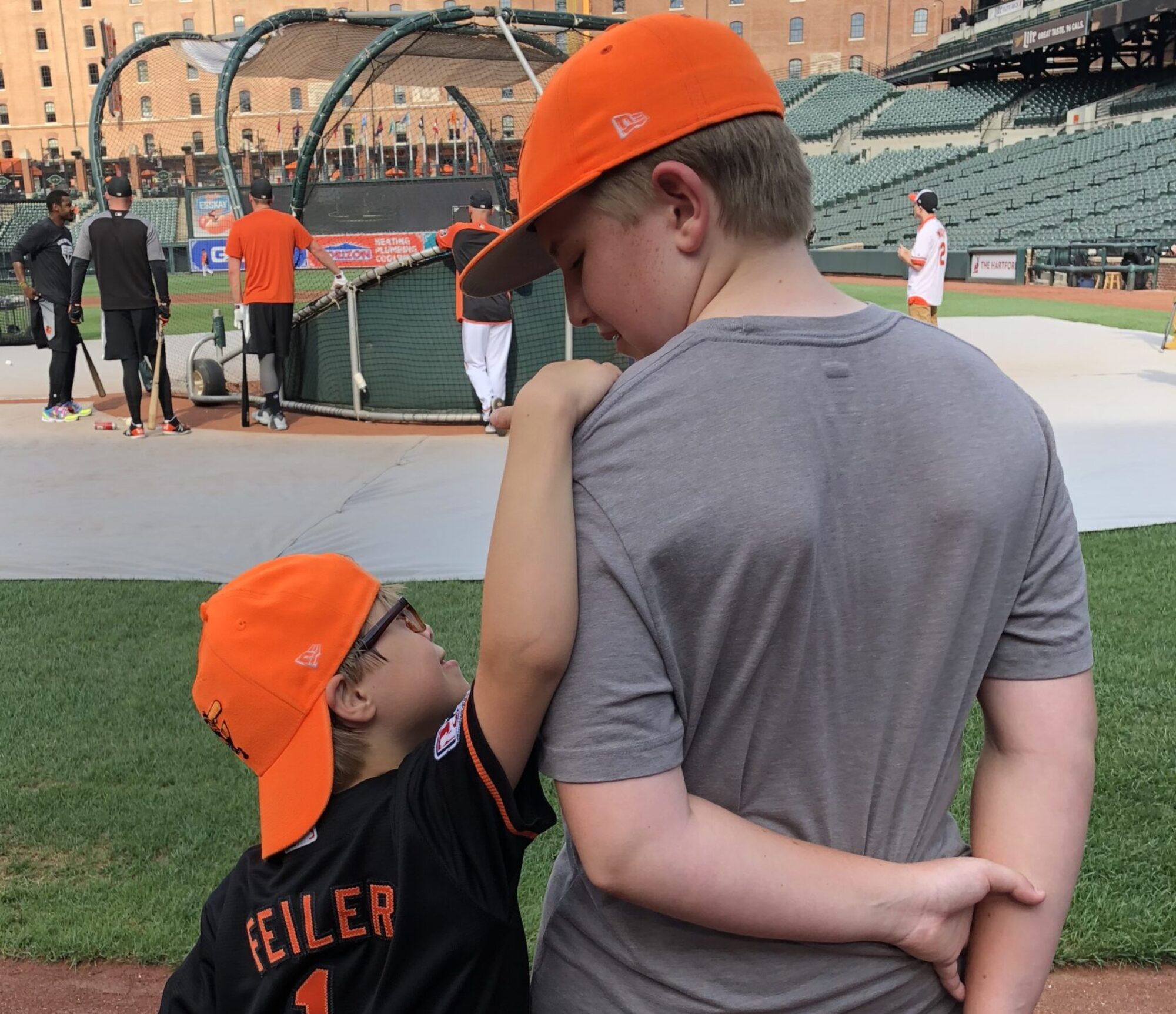I created this sacred space as a place to share our journey. I am not sure just yet where it will take me. But as memories pop up, I see how far we’ve come and I want to tuck them into this space as well. Not just preserving them but also reminding me how much we’ve grown. Well, mostly how much I have grown. So from time to time, I plan to share what I said then and where we are now. Here goes…
Then: June 2017, Ian was 8, going into 3rd grade
Down syndrome and special needs friends, while I’ve been loving my week at Scout Camp with Ian, it’s also shown me that we may be at the point where we need to share with other kids more about his “disability.” He’s had a blast but there have been moments where kids have asked why he talks “funny” or that he should be more clear (right in front of him) or don’t have as much patience or understanding of why things may be different or harder for him. How did you all handle this phase of parenting?
When Ian was a newborn, I used to have a “speech” prepared when I had to share that Ian had DS so I could set the tone for how others saw my son. So I am wondering if I need to do that now? Then I was thinking that it is really Ian’s story to tell… maybe he needs to be the one to explain that he may need to repeat something or need a helping hand? Because after all, it IS his story.
And today he was really good about telling the kids that he goes to speech and OT over the summer and that he has speech at school and with Ms. Ahna. He shared how he’s working on speaking more clearly and slowing down. And one warm-hearted little guy even told him, “Ian, I went to speech too!”
But then I think maybe if we share about the DS first that kids will see him as “different”… but then they are already starting to see differences. Ugh. And I’ve also noticed this stuff lately in other unstructured social situations. But the one bright light I see with older kids is how much patience and empathy and understanding they have for kiddos who may need some extra help and that makes my heart soar for the future.
Sooooooo, this long post is to ask for advice… how do I help other kids see and accept what may be harder for Ian without making them see him as SO different? And in keeping it real, this hurts my momma heart so bad… a growing pain for sure. And this parenting gig, typically-developing or not, is HARD. But I also know that Ian’s light shines bright, he never gives up, never gets down, and moves onward and upward. And so we go…
(And this is Ian imitating Marv in “Home Alone” when he had the spider on his nose)
Now: June 2020, Ian is 11, going into 6th grade
That week was probably one of the most painful times I’ve had as Ian’s mom. I rode home in the front seat with tears silently streaming down my face, my boys unaware in the back seat. I felt a physical pain deep in my chest. I had blissfully existed in this world of inclusion and all of this was like a sucker punch. I was totally unprepared for that time when other kids saw Ian as “different.”
Throughout Ian’s lifetime, I have had to deal with comments, questions, and ignorance countless times. I have had to feel that pain of someone seeing my son as less, as different in a way that was not celebrated. But this was the first time that Ian had to endure that. That he had to answer those questions. That he felt different.
I learned a lot from that week, as we usually do from times that stretch us. I learned that around the end of 2nd grade and the beginning of 3rd grade is when kids start to notice “differences.” Their questions don’t arise from being hurtful but from just not knowing. I think sometimes we don’t talk about differences because we want kids to see each other as the same. But I think it ends up being confusing. Kids do see that someone is different from them but don’t understand what that means or why we don’t talk about it. So that wonder and confusion hangs out there, rather than acknowledging that we all want the same things… to be included, to belong. That we all want to be seen as equal regardless of our differences. I wish someone had told me that around age 8 is when kids start to notice and ask questions and that that is a perfect time to talk about the beauty of difference and diversity.
The best part, three years later, is that it is Ian who does the educating. He has done presentations at school for his class and other classes for the past three years. He has presented about Down syndrome to a football team and spoke about his dreams in front of over 400 people. He has become his own advocate… sharing about his extra chromosome and almond eyes and, of course, his love of Home Alone movies. Spreading the message that even though we are different, we are the same in all the ways that matter. Three years later, Ian has shown me that he’s got this. He found his own voice. And he keeps on moving onward and upward, taking me along with him.


